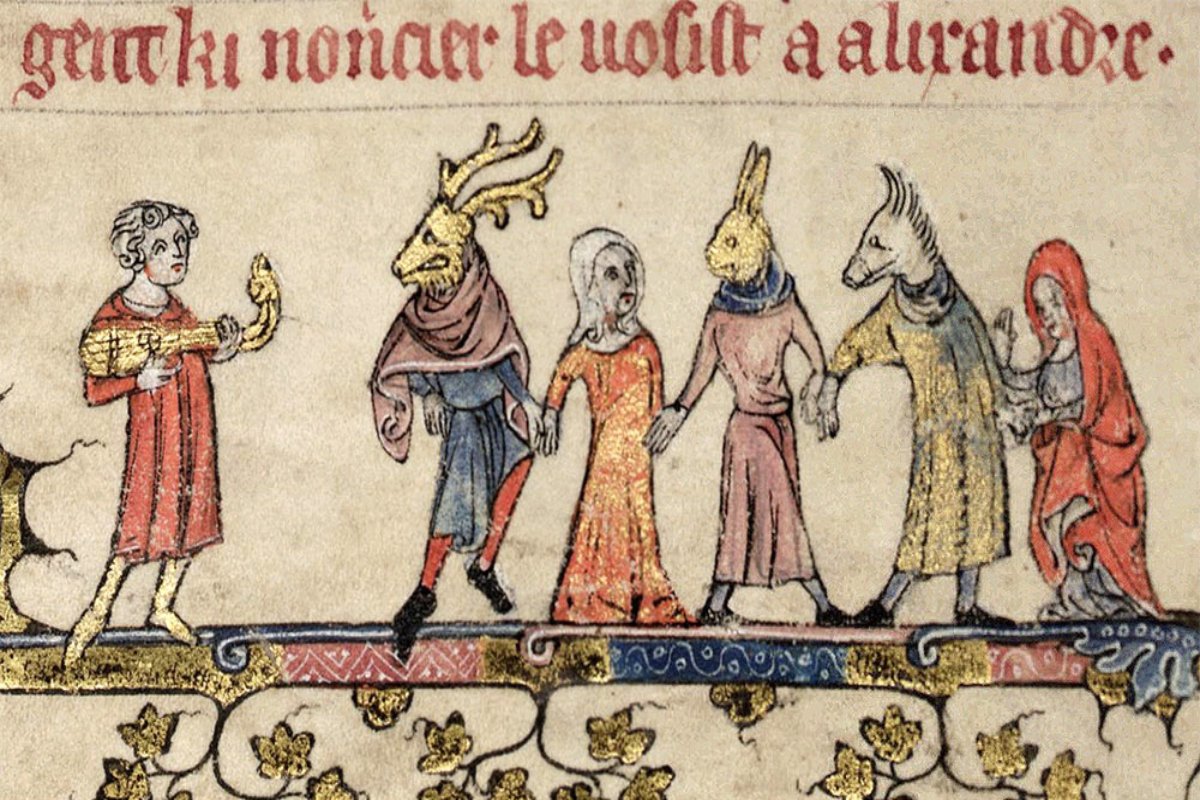Without getting into the ins and outs of the ‘Is Christmas pagan?’ debate, it’s worth dealing with some faulty assumptions people often make about the ‘Christianisation’ of pre-Christian traditions (buckle up for the thread…)
First of all, language people use in this area can be quite emotive, e.g. talk of Christians ‘usurping’ or ‘sanitising’ a pre-existing pagan festival. There’s a tendency to ascribe a collective agency that never existed to ‘the Church’ or ‘Christians’ when it comes to Midwinter
That wasn’t how it worked; there was no centralised programme of reforming popular festivities. The Church introduced liturgical celebration of Christmas to northern pagan cultures; how those Christianised cultures then dealt with Midwinter festivities as a whole varied widely
The minds and behaviour of early medieval people weren’t software programmed by a Church that exercised total control. The Church showed sporadic interest in popular celebrations, but its main concern was Christian rites and belief - not suppressing all pre-Christian legacies
(By the way, it’s always a bit perilous to apply the term ‘pagan’ to pre-Christian legacies, because we know so little about pre-Christian religion we have no reliable way of distinguishing between *specifically religious* pre-Christian customs and others)
(The later concepts of sacred and secular may not be especially relevant here, but we can’t rule out the likelihood that pre-Christian societies (just like Christian ones) had many behaviours and practices that simply lay outside the realm of the sacred. This is a complex debate)
The claim that Christians took a pagan Midwinter festival and ‘Christianised’ it is problematic, because I’m actually not entirely sure what it means to ‘Christianise’ a pre-Christian festival…
For example, when people compare Christian saints with pre-Christian gods – often implying that saints simply ‘replaced’ gods – what they’re really referring to is saints filling the same niches as the former gods in a spiritual ecology common to most pre-modern societies
So, for example, St Nicholas took the place of Poseidon/Neptune as patron of the sea, but it doesn’t make a lot of sense to describe Nicholas as ‘a Christianisation of the pagan god Neptune’. He just does the same thing Neptune does
Most pre-modern European societies had broadly the same concerns, the same areas of uncertainty, and the same spheres of life where divine protection was sought, before and after Christianity. Furthermore, societies often celebrated the pattern of the seasons in similar ways
Perhaps because we don’t experience the seasons as sharply as our predecessors this is lost on us, but a Midwinter festival is practically inevitable in an agricultural society. Christmas was *superimposed* as an extra layer on whatever was there before, in Britain as elsewhere
In time, as people became culturally accustomed to it, Christmas came to play the same role as whatever Midwinter festivals existed before it, and earlier traditions receded
But there’s simply not enough evidence to say that Christmas *replaced a pagan festival*, or that it is a Christianisation of a pagan festival
A plausible scenario is a mixture of sacred and profane festivities existing in parallel in early England, with pre-Christian elements fading gradually as they became less culturally relevant, and Christmas traditions becoming richer as society acquired a Christian identity
Tradition is like adding layers to a cake; over time, as the cake gets taller, the lower layers get squashed and eventually indistinguishable from the layers above and below them. That's what's happened to pre-Christian Midwinter; we just can't disentangle it from later stuff
So without getting into the extent to which Christmas is ‘pagan’ or not, let’s be careful about the language we use and the assumptions we make, because the nature of the evidence - and of human belief - is often insufficient to support them...

 Read on Twitter
Read on Twitter


